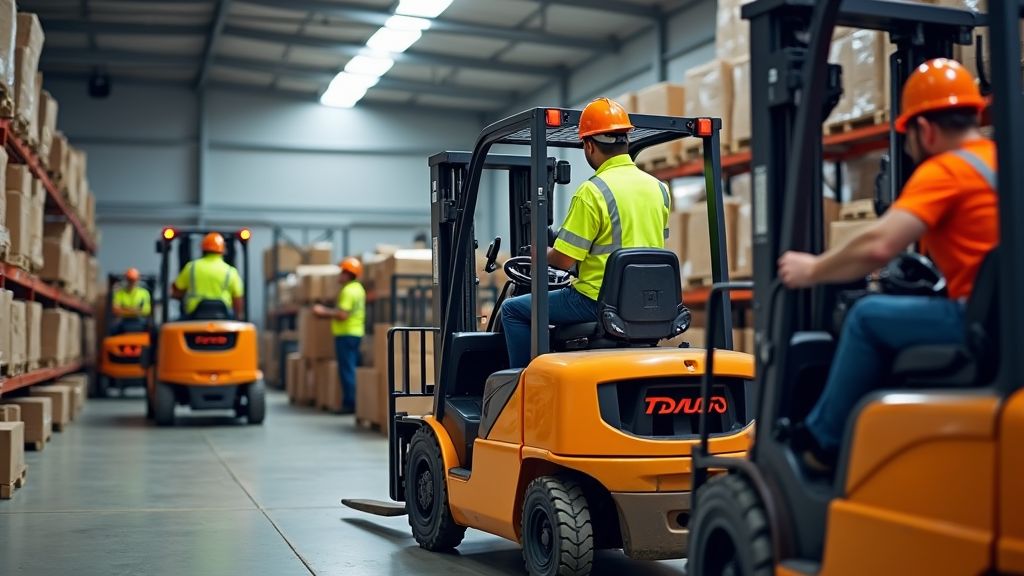Navigating the World of Forklift Jobs: Opportunities and Insights
Forklift jobs, often overlooked yet critical to the functioning of many industries, offer unique opportunities and challenges. This article unpacks what it means to work in this field, the skills required, and personal stories from professionals who breathe life into this essential role.

The Backbone of Warehousing: Understanding Forklift Jobs
Forklift operators play a pivotal role in warehousing and logistics operations. Tasked with moving heavy loads with precision and efficiency, they ensure that products are safely and quickly transported to their destinations. From storing inventory to loading and unloading trucks, the job is both physically demanding and technically skilled.
Essential Skills: What Makes a Great Forklift Operator
A great forklift operator possesses a blend of mechanical skills, spatial awareness, and safety knowledge. Operators need to understand the mechanics of their machinery, have the ability to navigate tight spaces, and adhere to safety protocols to prevent workplace accidents. Certifications and continuous training are critical to maintaining these skills.
Real Stories: Life as a Forklift Operator
For Jane Mitchell, a seasoned forklift operator, the job is more than just moving items from point A to point B. ‘Every day presents a new challenge,’ she says. ‘You have to be alert and adaptive. It’s like a puzzle, figuring out the best way to maneuver through tight spaces or how to balance different types of loads.’ Her stories shed light on the dynamic nature of the job.
Safety First: The Unspoken Laws of Forklift Operation
Safety is the cornerstone of forklift operations. Operators must adhere to stringent regulations to prevent accidents. This includes performing regular equipment checks, maintaining clear communication with colleagues, and abiding by speed limits within the workspace. Companies invest heavily in safety training to protect their workforce.
The Technological Evolution: Modernizing Forklift Jobs
Technology has significantly revamped the forklift industry. Modern forklifts are equipped with advanced features such as automated guided systems, improved ergonomics, and enhanced load management controls. These advancements aim to increase efficiency, reduce operator strain, and improve safety standards.
Career Pathways: Opportunities for Growth
A career in forklift operation can serve as a stepping stone to other opportunities within the logistics and warehousing sector. Experienced operators can advance to supervisory roles, become trainers, or even move into management. Continuous learning and skill development are key to progressing in this field.
Economic Impact: The Value of Forklift Operators
Forklift operators are vital to the economy, especially in industries like manufacturing, retail, and shipping. They facilitate the smooth flow of goods, which is crucial for meeting consumer demands and maintaining supply chain stability. Their role, though often behind the scenes, is indispensable to economic operations.
Getting Started: How to Enter the Forklift Industry
Entering the forklift industry typically requires obtaining certification from a recognized training program. Prospective operators should seek programs that offer comprehensive training in forklift mechanics, safety procedures, and practical operation skills. Networking and gaining on-the-job experience are also beneficial for building a career in this field.
